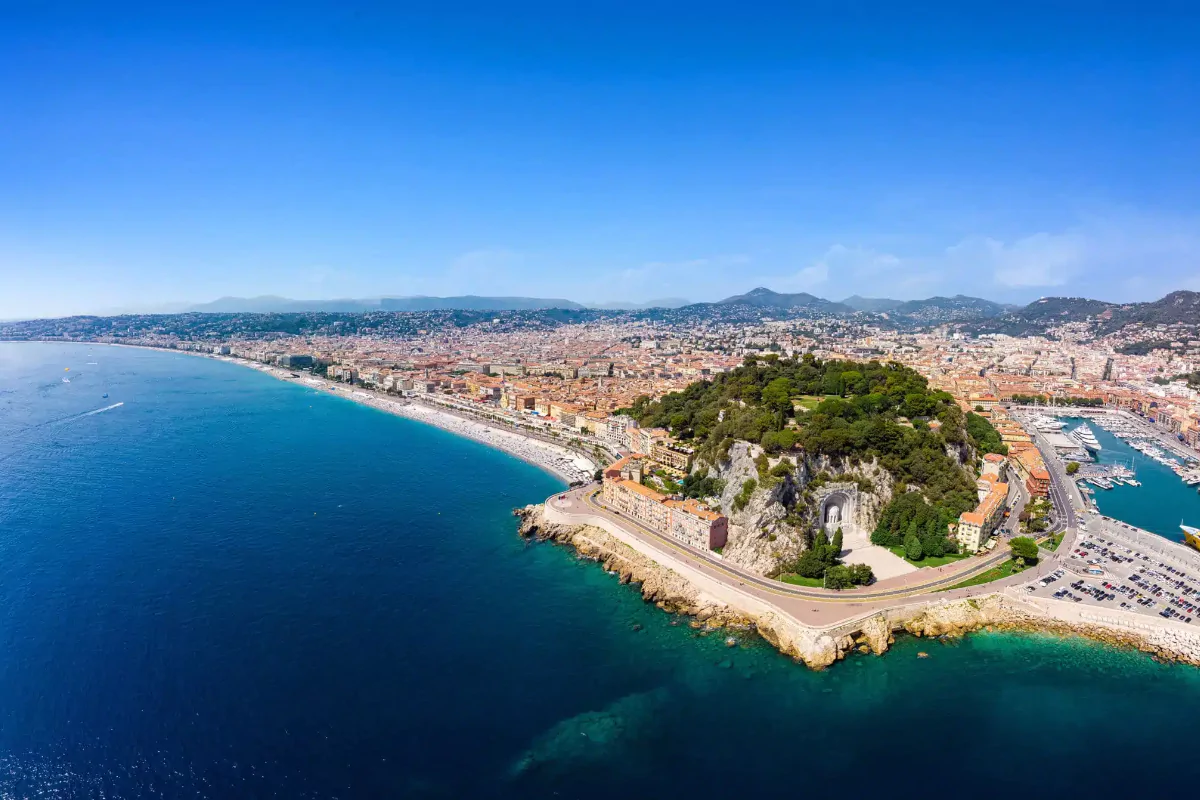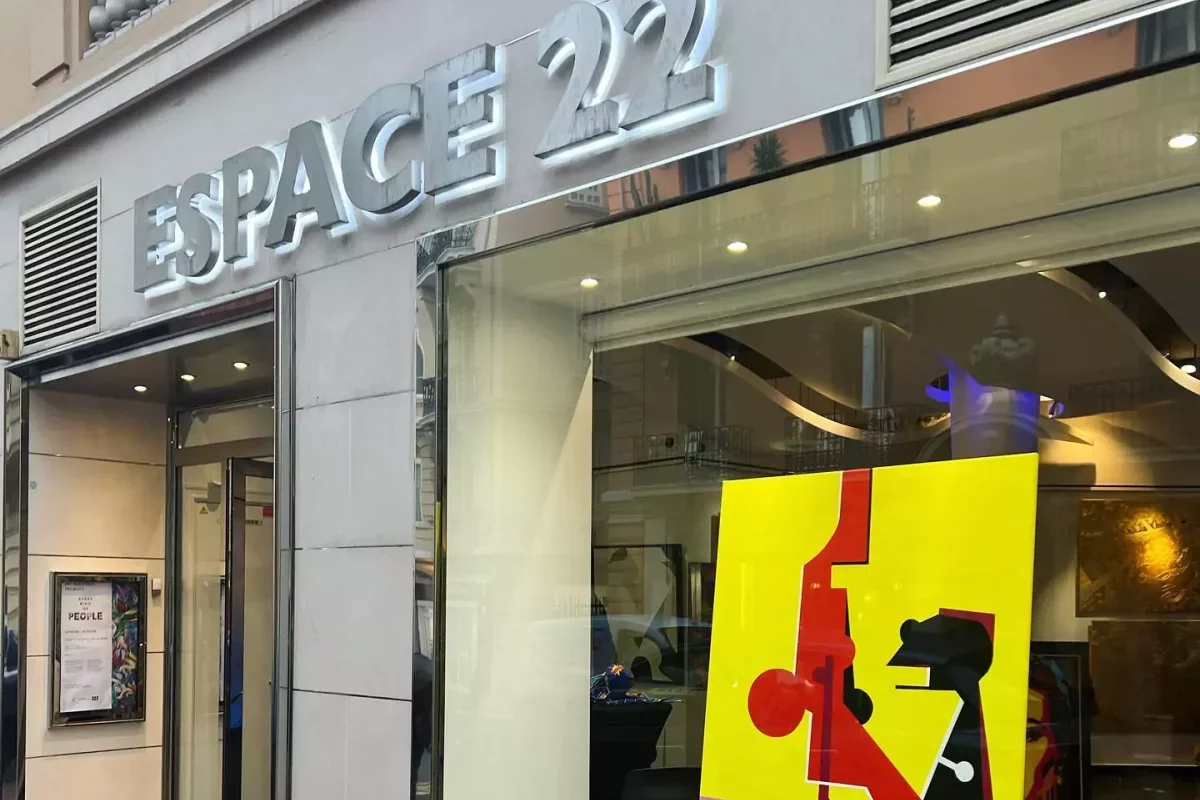The city of Nice is set to undergo a major transformation as it prepares to host key events at the 2030 Winter Olympics, which will be held across a number of venues in the Auvergne-Rhône-Alpes and Provence-Alpes-Côte d’Azur regions. With ambitious construction projects already in motion, Nice will redefine its sporting landscape, creating opportunities for significant economic and social development throughout the region.
In a recent municipal meeting in March, city officials unveiled their plans for major infrastructure developments meant to serve both Olympic competitions and the city’s residents by establishing new facilities.
The council has approved a crucial agreement with SOLIDEO Alpes 2030, the Olympic Venue Delivery Company, for the construction of a new ice rink that will host a number of events during the 2030 Winter Olympics.
See more: 2030 Winter Olympics coming to the French Alps
“This new rink will not only benefit our athletes but also provide a space for the community,” said Pascal Condomitti, Deputy Mayor for Sports in Nice and Vice-President of the Métropole Nice Côte d’Azur.
Another cornerstone of the event preparations is the Olympic village. The council has also authorised the sale of municipal land along Avenue Sainte-Marguerite and Boulevard des Jardiniers for the development of the Olympic Village, which will house athletes and officials during the Games and will later be converted into mixed-use housing – though not without controversy.
During the municipal discussions, Jean-Christophe Picard, a municipal councillor and member of the Les Écologistes party, expressed concern about social housing allocations, saying, “We must ensure that our community’s needs are not overshadowed by grand projects.”
The design of the Olympic Village will focus on sustainability, with green spaces and amenities that will benefit residents post-Games as well. The project aims to create a vibrant neighbourhood, fostering community spirit.
Transportation overhaul underway
Perhaps the biggest impact on local businesses involves the National Interest Market (MIN), where “fruit and vegetable wholesalers will have to settle in demountable buildings by the first half of 2026”, according to recent reports. This relocation is necessary for the construction of the Nice Airport TGV station, which Métropole Nice Côte d’Azur officials say “will be operational for the 2030 Olympic and Paralympic Winter Games.”
According to Nice Matin, SNCF subsidiary Gares et Connexions has justified this disruptive change, stating, “We need part of this land to build part of the parking lot for the future Nice Airport station.”
Nevertheless, the station will represent a significant upgrade to regional connectivity.
See more: Nice to spend €35 million on short-life building for UN Ocean Conference 2025
Economic projections and community impact
The economic impact of hosting Olympic events is set to be substantial, with estimates suggesting approximately 7,500 jobs will be created and around €400 million in added value to the local economy.
Read more: Nice set to host The Ocean Race Europe for the first time this summer
“The Olympics present a unique opportunity for economic growth and visibility for Nice,” remarked Condomitti during the municipal discussions. According to him, the benefits extend beyond the Games themselves, with increased tourism and investment expected to continue for years.
Anthony Borre, First Deputy Mayor of Nice, highlighted Nice’s readiness, saying, “Nice has organised and welcomed major events, showcasing its capacity to innovate sustainably.”
This experience with international events, demonstrated this June with the arrival of the United Nations Ocean Conference, was a key factor in the city’s selection as an Olympic venue, alongside existing facilities like the Allianz Riviera.
Balancing Olympic ambitions with local priorities
While enthusiasm for the Olympics remains strong among officials, some council members have expressed concerns regarding resource allocation.
Picard noted, “We cannot ignore the pressing need for social housing while pursuing these grand ambitions.”
See more: Louis-II Stadium set to undergo three-year renovation
Meanwhile, Richard Chemla, Third Deputy Mayor of Nice in charge of Health and Ecology, also shed light on environmental commitments.
“Our goal is to create a legacy that benefits both the Olympics and our environment,” he said, pointing to the sustainability initiatives that permeate Nice’s Olympic preparations, such as the use of eco-friendly construction materials, energy-efficient designs and waste reduction strategies.
Financial transparency has emerged as another focal point, with Picard stating, “We need to ensure that the financial burden on taxpayers is minimised while maximising the benefits of hosting the Olympics.”
As Nice embarks on this Olympic journey, Borre highlighted the importance of community engagement.
“By collaborating with neighbouring cities, we can provide our young people with diverse sporting opportunities,” he concluded, expressing the cooperative spirit that he hopes will ensure the 2030 Winter Olympics leaves a positive impact in Nice and the surrounding region.
Read related:
Monaco officially crowned 2025 World Capital of Sport at palace ceremony
Monaco Life is produced by a team of real multi-media journalists writing original content. See more in our free newsletter, follow our Podcasts on Spotify, and check us out on Facebook, Instagram, LinkedIn and Tik Tok.
Photo source: Office de Tourisme de Nice



